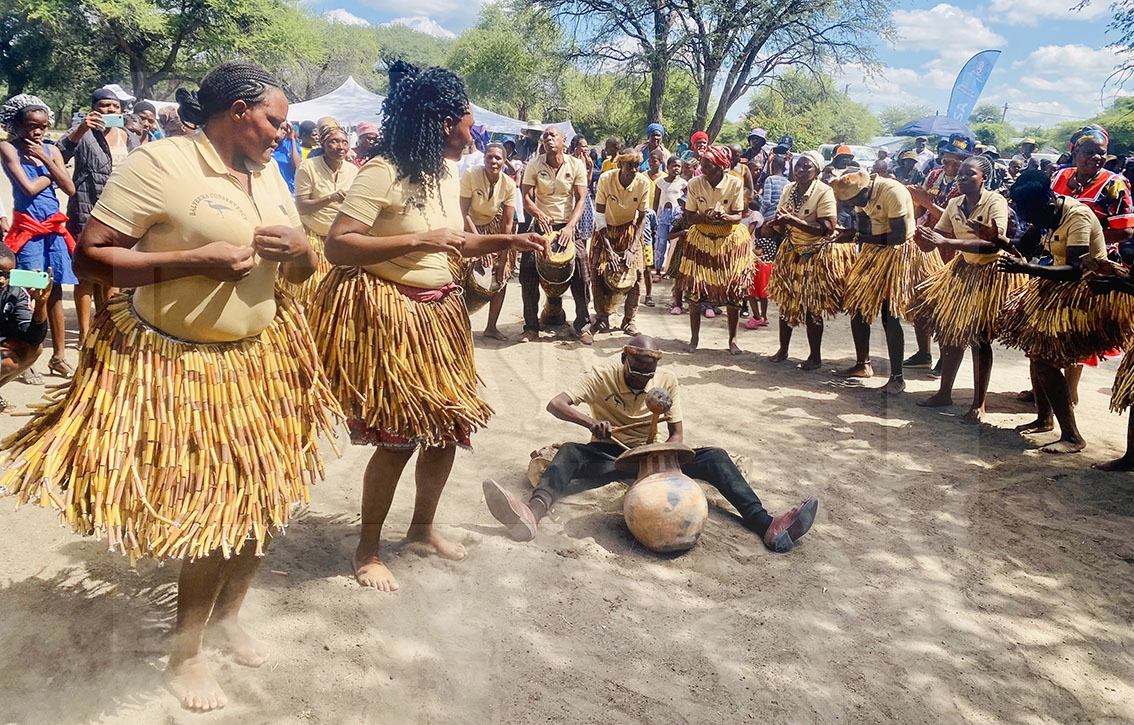CJ reflects on entertainment development
01 Oct 2020
Arguably the most musical decades ever of the last century, the 60s and 70s were a defining moment for pop music.
For Botswana, a country that had just attained its independence, the 1970s was a decade of breakthroughs for budding musicians, with new bands a mushrooming all over. It was at the height of apartheid and the influence of seasoned South African musicians crossing into Botswana set the scene alight.
Francistown and Gaborone became the heartbeat of entertainment. Ghetto, as Francistown is known, was home to the likes of The Shades and Black Serpents while Gaborone nestled The Metronones.
Clement ‘CJ’ Jackson, a guitarist of note remembers the 70s entertainment in Botswana as a troubadour, a mobile musician. “We played from house to house. Wherever there was a shebeen, we would play there,” reminisces CJ whose father owned one of the troubadour bands.
The accordion was the in vogue instrument, says CJ. Music became more a necessity than just entertainment and artists were just happy to be paid in kind, mostly with beer. “It was quite a treat even though the beer would be warm because it was kept on shelves,” says CJ.
CJ reckons that with high illiteracy post-independence, music was the only thing people could to put food on the table. He says the music improved because of South African influence especially with the introduction of electronic music instruments such as keyboards.
The birth of bands such as The Scarers which comprised the likes of Tshepo Tshola, Steve Kuhlman, Malombo Mmereki, Socca Moruakgomo, the late Tsilo Baitsile; the Originals which CJ himself was part of as well as Louis Mhlanga and Socca Moruakgomo; In Crowds of Banjo Mosele, Lekofi Sejeso and Kaizer Rakhudu introduced bands with heavy influence from South Africa.
“There was no original music from Botswana,” recalls CJ, saying even Radio Botswana lineup constituted mostly South African music.
Up until the 1980s with the emergence of bands such as Kgwanyape and Afro Sunshine, Batswana started recording their own music.
The two recorded the first ever professional albums; Mephato ya Maloba by Kgwanyape as well as This is Africa with a hit song AmaBasket by Afro Sunshine.
“It was around 1985 that we then saw the need to record,” observes CJ. It was at the same time that a South African, Lloyd Ross from Johannesburg who then produced Sankomota, toured Botswana and stumbled upon Kgwanyape performing in the main mall. CJ relates how Ross was intrigued by the original music they played, and brought a mobile studio to Jwaneng upon realizing that there was no studio in Botswana.
The late 1980s saw international acts such as UB40, Eric Clapton, Tracy Chapman, Paul Simon, Maxi Priest and a whole other renowned international acts at the time flocking to Botswana.
This was a moment for local bands, Kgwanyape and Afro Sunshine to share stage with such big names. “Whenever these guys came to Botswana for their performances, they would ask for Kgwanyape to share a stage with,” notes CJ, saying music industry had no support back then hence big opportunities were lost.
Whilst the last part of the 20th century saw Botswana coming of age and getting recognized, the 21st century arrived with a variety of genres for the millennia generation. However, the millennials were challenged with regulated entertainment of strict times which now changed the scope of entertainment.
Dj Chrispin of Sedi Laka fame shares his thoughts and experience during the first decade of the millennium. Having developed love for the creatives and music in general whilst in school, Dj Chrispin says house music appealed to most people in the 2000s; alongside jazz on Sundays.
When the liquor regulations came into being, Dj Chrispin says this called for day entertainment; which now introduced soulful house music, picnics and chill sessions picking up away from nightclubs.
“This was a blessing in disguise for the industry because now we saw transition where most people started producing music which identified with Botswana,” states Chrispin, adding that it is the type of music that resonates with such entertainment vibe.
He says the old generation now paved way for the new crop, as generations were changing; with the likes of Amantle Brown, HanC, and Motlha getting into the afro pop scene.
“Then we started also to see a change in entertainment scenery with comedy which was not popular in Botswana,” adds Chrispin, saying the industry peaked during the 1990s and hit a slump in the millennia despite new talent and ambiance.
He says the 2000s with its regulations saw most artists suffering depression, some live bands dying and other artists just abandoning the craft totally.
However, Chrispin says corporates and companies came to the rescue and supported artists as well as big events. The new norm then was now day entertainment, which became a lifestyle.
It has its good and bad side, notes Chrispin, saying day entertainment unleashed talent in the form of fashion designs as Batswana came to the party dressed up at picnics and chill sessions. Nevertheless, he says the bad side was how people consumed alcohol, “where people would leave picnics earlier because of the regulations and attend night clubs extremely drunk and as a result accidents increased.”
The new dawn for entertainment industry came before 2019 general elections. “Go ne ga nna monate ga nna diphetogo ra boela kwa botshelong jwa all night,” reckons an elated Chrispin.
Chrispin highlights that the industry was now recharged and grew with new events, concepts, technologies and businesses coming in. “We knew now as artists that we will make money; typical myself I would have three shows at the most especially during independence,” he adds.
The industry changed tremendously and for the better, with new artists and Djs bringing new technologies which really developed the industry.
Just as the music industry was developing and ready to prosper, the COVID-19 pandemic hit and entertainment suffered the whole world. “Everything changed from the little that we were making to being with absolutely no income,” Chrispin sadly notes.
Although it is a setback, Chrispin acknowledges the pandemic is a blessing in disguise as it stimulated innovation for the creative industry. “We are now having everything going digital,” says Chrispin appealing for support from government and private sector to keep the industry alive. ENDS
Source : BOPA
Author : Ketshepile More
Location : GABORONE
Event : Story
Date : 01 Oct 2020







